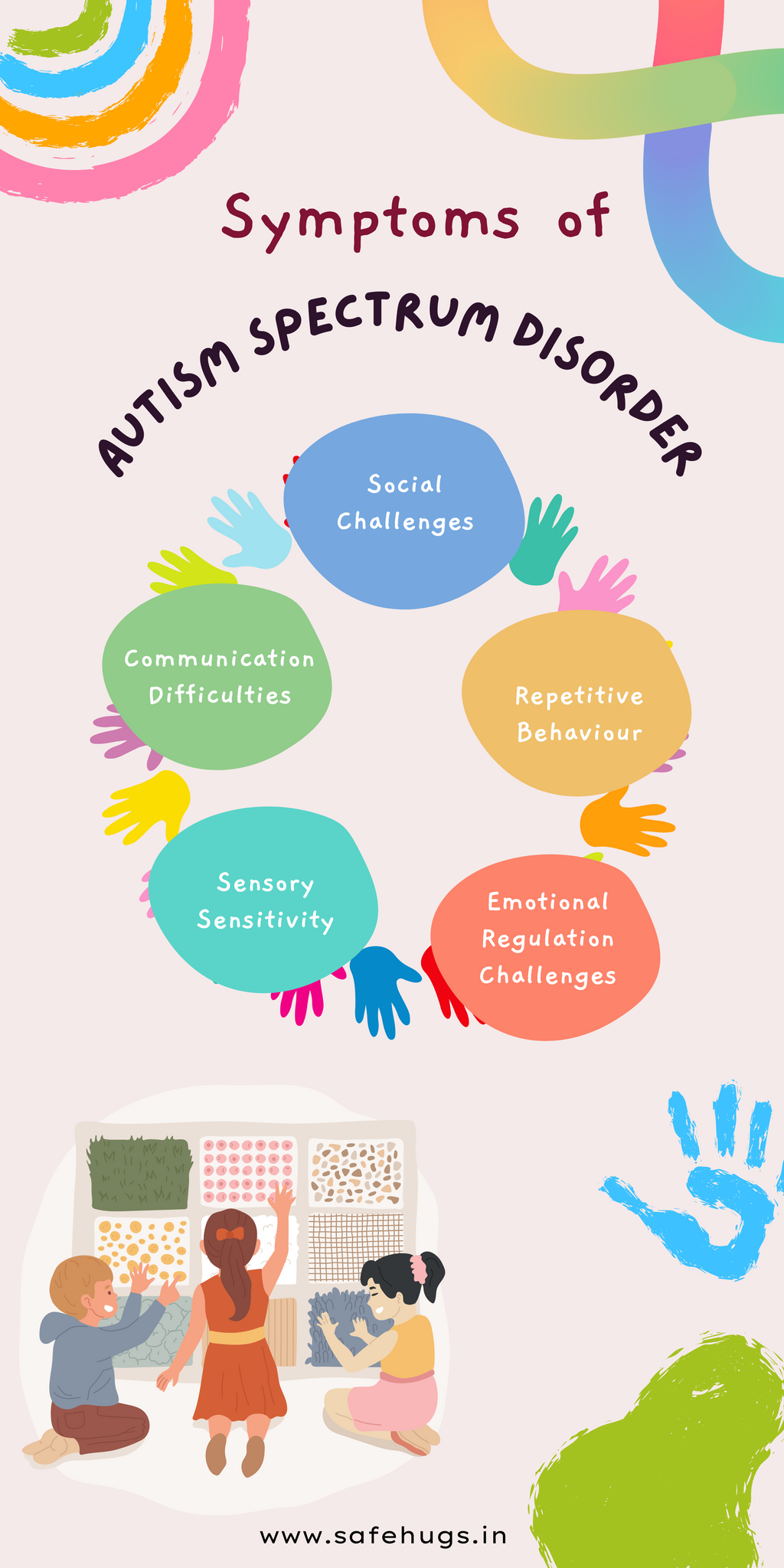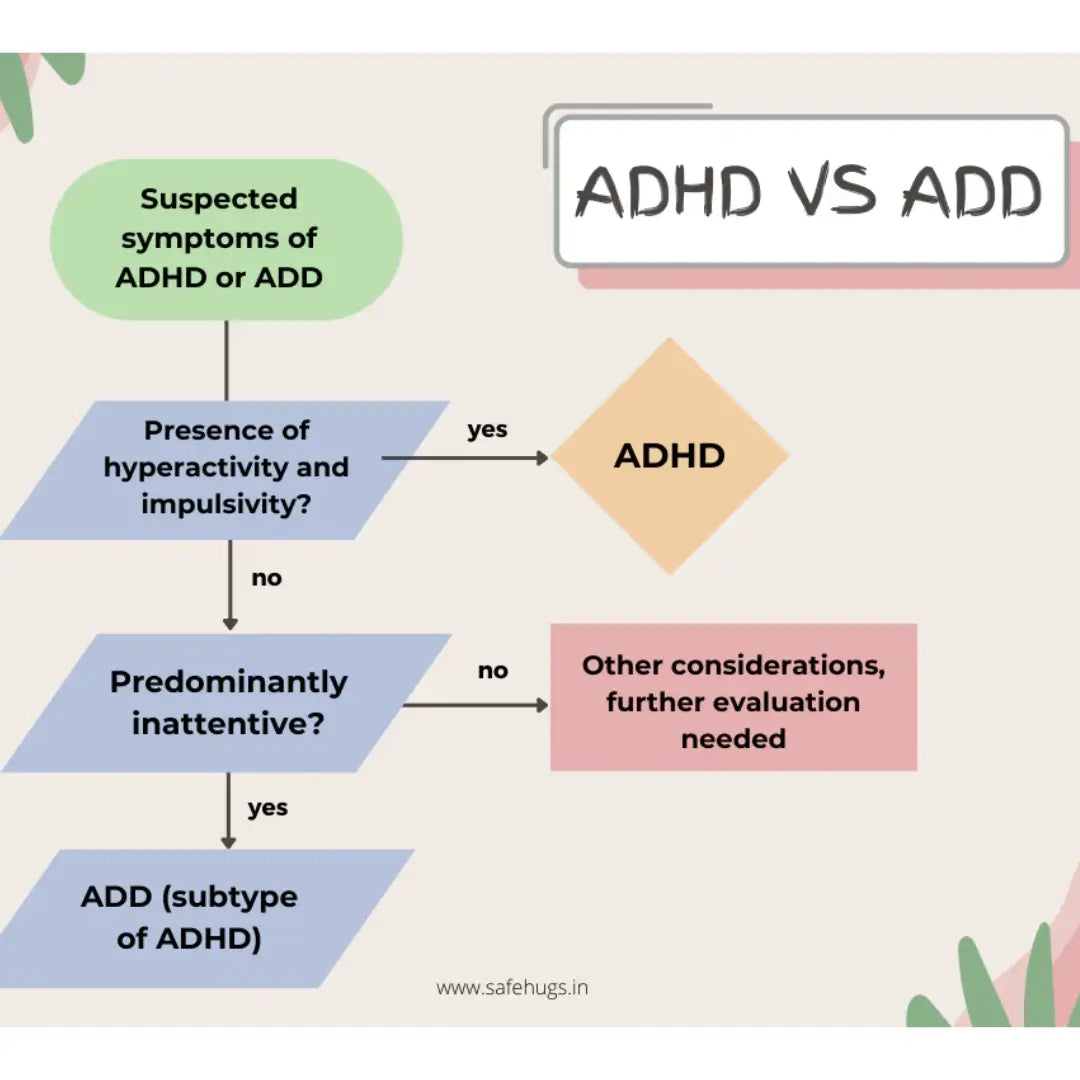Recognizing Symptoms of Autism
Autism Spectrum Disorder (ASD) is a complex neurodevelopmental condition that manifests in a diverse range of symptoms and challenges. From difficulties in social interaction and communication to sensory sensitivities and repetitive behaviors, autism symptoms can vary widely among individuals. In this comprehensive guide, we explore the intricacies of autism symptoms, providing insights, examples, and resources for understanding and supporting individuals across the spectrum.

| “Clinicians need to be mindful of co-occurring conditions that commonly accompany autism. These may include intellectual disability, attention-deficit/hyperactivity disorder (ADHD), anxiety disorders, and sensory processing difficulties” Dr. Susan Swedo |
Social Interaction Challenges:
One of the defining features of autism is difficulty in social interaction. Individuals with autism may struggle to engage in reciprocal conversations, maintain eye contact, or understand social cues. For example, a child with autism may find it challenging to initiate play with peers or may prefer solitary activities over group settings. These social difficulties can impact relationships, academic performance, and overall quality of life.
Communication Differences:
Communication deficits are another common characteristic of autism. Some individuals may have delayed speech development or may not speak at all, relying on alternative forms of communication such as gestures, picture cards, or augmentative and alternative communication (AAC) devices. Others may have difficulty understanding abstract language or interpreting nonverbal cues, leading to misunderstandings or social isolation.
Repetitive Behaviors and Restricted Interests:
Many individuals with autism engage in repetitive behaviors or have narrow, intense interests. These behaviors can include repetitive movements (e.g., hand-flapping, rocking), insistence on sameness or routines, and preoccupation with specific topics or objects. For instance, a person with autism may spend hours arranging objects in a particular order or may become fixated on a particular hobby or subject matter.
Sensory Sensitivities:
Sensory sensitivities are also prevalent among individuals with autism. They may experience heightened or diminished sensitivity to sensory stimuli such as lights, sounds, textures, or smells. For example, a person with autism may cover their ears in response to loud noises or may be unable to tolerate certain textures of clothing. These sensory sensitivities can lead to discomfort, anxiety, or meltdowns in overwhelming environments.
Strengths and Talents:
Despite the challenges posed by autism symptoms, many individuals with autism possess unique strengths and talents. Some may excel in areas such as mathematics, music, art, or technology, demonstrating exceptional skills and creativity. By recognizing and nurturing these talents, individuals with autism can cultivate a sense of pride, accomplishment, and self-confidence.

Seeking Support and Resources:
For parents, caregivers, educators, and individuals with autism, accessing support and resources is crucial. Early intervention services, including speech therapy, occupational therapy, and behavioral interventions such as Applied Behavior Analysis (ABA), can provide targeted support to address specific challenges. Additionally, support groups, advocacy organizations, and online communities offer valuable guidance, encouragement, and a sense of belonging.
The Role of Parents and Caregivers
As a parent or caregiver, you are your child's first and most influential advocate. By being observant and attuned to your child's behaviors and developmental milestones, you play a crucial role in the early detection of autism. Trust your instincts and seek guidance if you have concerns about your child's development.
| Dr. Rebecca Landa, director of the Center for Autism and Related Disorders at Kennedy Krieger Institute, says “Parents and caregivers should be aware of developmental milestones and red flags that may indicate autism spectrum disorder (ASD).” |
Seeking Professional Evaluation and Support
If you notice potential signs of autism in your child, it's essential to seek a comprehensive evaluation by a qualified healthcare professional, such as a pediatrician, developmental pediatrician, or child psychologist. They can conduct standardized screening tools and assessments to determine if further evaluation for autism is warranted.
Early Intervention Makes a Difference
Research has shown that early intervention can significantly improve outcomes for children with autism. If your child is diagnosed with autism, early access to intervention services such as speech therapy, occupational therapy, behavioral therapy, and developmental support programs can help address areas of difficulty and promote skill development.
| “It is crucial for parents and caregivers to be proactive in seeking evaluation and support if they suspect their child may have autism. Early intervention programs, such as applied behavior analysis (ABA) therapy, speech therapy, and occupational therapy, can make a profound difference in the long-term outcomes for individuals with autism.” Dr. Karen Pierce. |
Empowering Families with Knowledge and Support
Navigating the journey of autism can be overwhelming, but you are not alone. There are numerous resources, support groups, and advocacy organizations dedicated to providing guidance, information, and support to families affected by autism. By connecting with others who understand your experiences, you can find reassurance, encouragement, and practical strategies for supporting your child's unique needs.
| “Parents of children with autism have a higher likelihood of having another child with autism, and certain genetic conditions or prenatal exposures may increase the risk as well. Therefore, it's important for healthcare providers to take into account family history and potential risk factors when assessing a child for autism symptoms.” Dr. Lonnie Zwaigenbaum |
In conclusion, recognizing the early signs of autism in children is the first step towards accessing the support and resources needed to help them thrive. Understanding and navigating autism symptoms require patience, empathy, and a willingness to embrace neurodiversity. By recognizing the diverse array of challenges and strengths within the autism spectrum, we can foster an inclusive society that celebrates individual differences and promotes opportunities for growth and success. Let us continue to advocate for acceptance, support, and empowerment for individuals with autism, ensuring that they have the resources and opportunities to thrive.
FAQs:
- What are the 5 symptoms of autism?
Difficulty in social interaction, repetitive behaviors, communication challenges, sensory sensitivities, and difficulty in understanding non-verbal cues.
- Can a autistic person have a normal life?
Yes, with appropriate support and understanding, many autistic individuals can lead fulfilling lives.
- How does autism behave?
Autism manifests differently in each person, but common behaviors include difficulty in social situations, repetitive actions, sensory sensitivities, and intense focus on specific interests.
- What are the 3 main causes of autism?
Genetic factors, environmental influences, and prenatal factors are considered among the main causes of autism, though the exact causes remain complex and multifaceted.






























